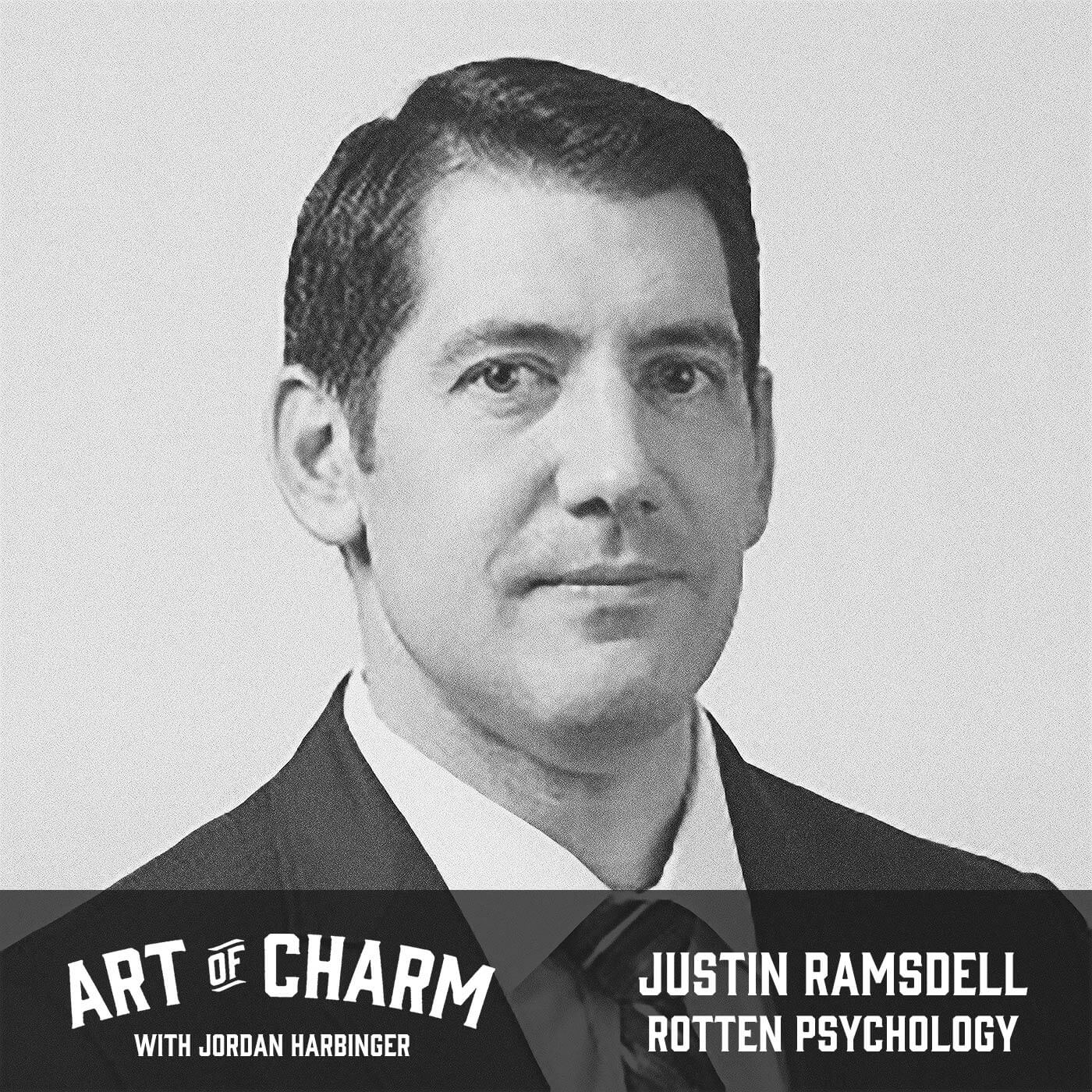Justin Ramsdell is a clinical psychologist and an assistant professor of forensic psychology at George Mason University. His current work focuses on law enforcement interactions with individuals with severe mental illnesses, crisis de-escalation, and the psychology of victim experiences.
“If somebody tells you that something works for everything, then it probably works for nothing.” -Dr. Justin Ramsdell
The Cheat Sheet:
- Understand what the Daubert Standard is, how it factors into scientific expert testimony admissible in court, and how it helps keep Dr. Justin Ramsdell honest with his own psychological work.
- Why we should consider a panacea that supposedly solves all problems, answers all questions, and cures all ills as a red flagbearer of pseudoscience.
- How science seeks to clarify and refine with concise terminology while pseudoscience remains vague and reliant on hollow jargon.
- Practice these critical thinking exercises to keep one step ahead of pseudoscience peddlers who might not have our best interests in mind.
- Who “they” are and what “they” don’t want you to know!
- And so much more…
[aoc-subscribe]
Download Episode Worksheet Here
When deciding to commit limited resources (like money, time, and effort) to a theory or system related to self-improvement, the consumer should have tools to evaluate their options and invest in quantifiable results over quick-change quackery.
Clinical psychologist, assistant professor of forensic psychology, expert witness consultant, and crisis intervention team trainer Dr. Justin Ramsdell joins us today to help us tell the difference between science and pseudoscience by honing our critical thinking skills with a professional edge. Listen, learn, and enjoy!
More About This Show
When asked how he got into the business of separating fact from fiction, clinical psychologist Dr. Justin Ramsdell says “it was mostly out of necessity.”
As an expert witness consultant in court, he needs to keep in mind these five aspects of The Daubert Standard, which he explains “roughly 75-76 percent of the states in the United States use[s]…to determine what constitutes an expert in a given field in the courtroom.”
- It has to be empirically tested by objective groups. “Has whatever you’re talking about — that you’re claiming is science — has it been tested?” asks Justin.
- The idea has to be peer-reviewed. “Has it been reviewed by peers, publically, in your field?” asks Justin.
- It has to have a known potential error rate. “If you’re using something, do you know how often it fails? … Without a gauge for reliability, there’s no way to trust it in court,” Justin says. He points out this is why voice stress analysis and polygraph tests are sometimes problematic as evidence during a trial.
- The existence and maintenance of standards of control. “If it’s a machine, does everyone use the machine the same way? If it’s a psychological testing instrument, does everyone use the instrument the same way?” says Justin.
- The degree to which everyone in the field generally accepts it as true. “If someone starts spouting off an idea and we were to pull a hundred psychologists, if 85 percent of everybody said, ‘Yeah, that’s a valid idea; we talk about that,’ then you’re good to go,” Justin says. “If you say something and you ask a hundred psychologists and you only get three people who say, ‘That’s a great idea’…that’s going to be a problem.”
At its core, what the Daubert Standard strives to establish is the scientific validity of the evidence presented over inaccurate conjecture — either through genuine misperception or outright fabrication by a witness. In short, it’s designed to separate fact from fiction. Following this standard for legal procedures, Justin finds it translates well to his work in psychology when he’s pressed to determine if a method he’s using would hold up in court.
“Some of those things — for example, a Rorschach test — for some things, the Rorschach’s actually really valid; for other things, it’s not. It has a tendency to overpathologize people and everyone thinks it’s — in fact, it is — psychology from 1917. That has problems, so you can’t use it — even though I love it! But I would never actually use it in a court case because it wouldn’t hold up to the standards.”
By testing every method he might employ in his field through this pseudoscience lens, Justin stays keenly aware of the thin line that sometimes separates proven science from disproven quackery. Everything is suspect, and even methods once considered tried and true require regular scrutiny to ensure their accuracy endures.
“Can I trust the information coming from this practice?” asks Justin. “Whether it’s polygraph, criminal profiling, voice stress analysis, different interrogation techniques, even in psychology we’re talking about things — especially in forensics, like the use of hypnosis for recalling memories of past trauma or just recovered memories in general, dissociative identity disorder — there’s all sorts of things that walk this fine line between being scientific and pseudoscientific, and those need to be explored.”
Listen to this episode of The Art of Charm in its entirety to learn more about how we can tell the difference between science and pseudoscience, why we should be suspicious when offered a panacea that purports to seamlessly solve all aspects of a given problem (e.g., the once-venerated medical practice of bloodletting that was the given cure for every imaginable ailment from headaches to diarrhea for centuries), why Justin considers the benefits of improvement we offer at AoC legitimate science and not a panacea (we know, but it’s always good to hear it from a professional!), why vague jargon is the language of pseudoscience, how we can use the process of scientific experimentation to gauge our own progress, how to apply what we’ve learned about pseudoscience to the information we receive, and lots more.
THANKS, JUSTIN RAMSDELL!
If you enjoyed this session with Justin Ramsdell, let him know by clicking on the link below and sending him a quick shout out at Twitter via AoC:
Click here to thank Justin Ramsdell at Twitter (via AoC)!
Resources from This Episode:
- Justin Ramsdell at George Mason University
- Justin Ramsdell at Robson Forensic
- The Daubert Standard
- Rorschach Test
- Bloodletting
- Angela Duckworth | Grow Your Grit (Episode 526)
- Jo Marchant | Cure (Episode 530)
You’ll Also Like:
- The Art of Charm Challenge (click here or text AOC to 38470 in the US)
- The Art of Charm Bootcamps
- Elite Human Dynamics
- Best of The Art of Charm Podcast
- The Art of Charm Toolbox
- The Art of Charm Toolbox for Women
- Find out more about the team who makes The Art of Charm podcast here!
- Follow The Art of Charm on social media: Instagram | Twitter | Facebook
On your phone? Click here to write us a well-deserved iTunes review and help us outrank the riffraff!




